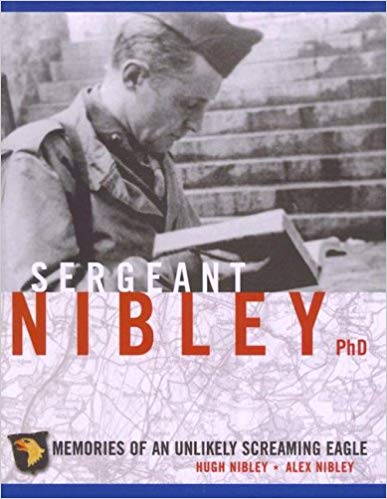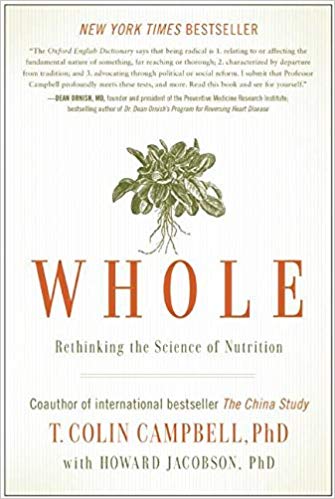There are many good accounts of soldiers in World War 2, but I just finished one that is unlike any others I’ve read. It’s the delightful Sergeant Nibley PhD: Memories of an Unlikely Screaming Eagle by Hugh Nibley and Alex Nibley.

It details the experiences of Hugh Nibley, the famous BYU scholar of ancient history, as a soldier in the war, starting from when Nibley was on his mission for The Church of Jesus Christ of Latter-day Saints and met Hitler coming out of a bathroom in Germany.
This book made me laugh and wonder and sorrow. It includes insights, surprises, and anecdotes that I haven’t found anywhere else. The authors also include many pictures that help the whole thing come alive. If you like history or biographies or are a fan of Nibley’s works, I think you’ll love this book.
*
Some of the wonderful residents of Rich County, Utah where I live are not going to like this next one. But I have to share it because if what’s detailed in this next book is accurate, it could help so many.
The book is Whole: Rethinking the Science of Nutrition by T. Colin Campbell who has been one on the forefront of nutrition research for over forty years.

Campbell’s legacy, the China Study, is the most comprehensive study of health and nutrition ever conducted. He’s a renowned researcher at Cornell University. He has worked as a senior science adviser to the American Institute for Cancer Research, and sits on the advisory board of the Physicians Committee for Responsible Medicine.
I share all that to simply suggest that he might have a little bit of expertise that’s worth listening to.
Campbell grew up the son of a dairy farmer and went into the field of nutrition, believing animal protein, specifically dairy, could help solve nutrition problems in countries with starving populations.
What he found shocked and surprised him. And at first, he didn’t believe it. But he and others ran study after study, and the science led to one conclusion: a diet high in animal products and processed foods increases the risk of many cancers, heart disease, diabetes, and a host of other maladies just as surely as tobacco increases the risk of lung cancer. What he found is that the healthiest populations ate a whole-food, plant-based diet.
Now that goes against a lot of what we’ve been told. Milk is supposed to do a body good. And surely there’s nothing more healthy than lean cuts of meat. And aren’t there studies that prove this?
In this book Campbell explains the science behind the evidence for what he and other scientists are seeing, the ways our current scientific paradigm ignores the fascinating complexity of the human body, and why, if we have such overwhelming evidence that everything we think we know about nutrition is wrong, our eating habits haven’t changed.
I know this may seem like yet another whiplash science report. You know the kind—one report says red wine is bad for you and the other says red wine is good. But in this book, Campbell explains why we get such goofy and contradictory claims.
If you or someone you love is dealing with heart disease, cancer, including breast cancer, obesity, or diabetes, you will want to hear him out. Whether what he has to say persuades you and what you will do about it, is up to you. But I think you’ll benefit from listening. If you’re interested in science, this book will give you surprising insights about its practice that you probably haven’t considered. Listening to Campbell has been eye-opening. I highly recommend this book. If, after hearing it, you want more information, I recommend his previous book called The China Study.














